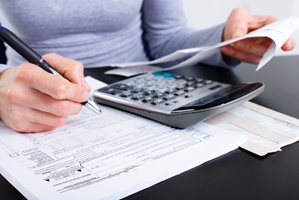
In the past several years, the Australian government has taken steps to become more business friendly. In September 2016, for example, a bill was introduced to drop tax rates for many corporations, plus the threshold for what is considered a small business was raised, which represented a major benefit to many Australian small-business owners.
However low the corporate tax rate is, though, it's still essential that you are always preparing for the next tax season. Getting stuck with a huge bill at the end of the fiscal year can cause a major headache at best, and a financially destabilising loss at worse. As always, the best way to manage your taxes are with accounting services who will help you save every penny you can.
With that in mind, here are 7 tips you can use to reduce your year-end corporate tax bill:
1. Write off bad debts
Bad debts, or debts that you will be unable to recover, can be a major liability for small-business owners. If any debts were included in your assessable income for this year or prior and they were lent in the ordinary course of business, you can write them off and reduce your taxation obligation.
The Australian Taxation Office allows you to claim a tax deduction on bad debts if you can prove that it has been written off by the 30th of June. In order to prove that the debt is bad, you'll need to present written evidence – like meeting minutes – that your company had written it off.
2. Claim your expenses
While this may seem like an obvious step in the course of doing business, a thorough survey of your expenses can make a huge difference in your year-end tax bill. The ATO will allow you to deduct most of your expenses as long as you can show that they are directly related to running your business.
While business travel is likely already claimed, keep in mind that you can also claim for costs that are related to providing a clean, safe, and pleasant working environment. That means that security expenses, janitorial services, and even gardening costs can be written off. Professional accounting services will help you separate business and non-business expenses.
Remember to provide a receipt or proof of purchase for each of your expenses in order to claim them. There are some expenses that can be written off without a proof of purchase, but you can only claim up to $300.
3. Bring expenses forward
In addition to claiming your expenses in this fiscal year, you can also pre-pay and bring your deductions forward. These prepaid, tax-deductible expenses must be either $1,000 or less or be for goods or services that will be used in the next 12 months.
Be aware that this move will only delay the taxes that your business owes by a year, not reduce them entirely. That means that you should be cautious with it and only bring expenses forward if your company's cash flow is positive and it will not put your finances in jeopardy for the next fiscal year.
4. Contribute to your superannuation
A superannuation account is a pension program that you can create for your employees. Funds deposited here can be claimed as a deduction in your year-end taxes. However, there are some qualifications you may need to fulfill. You should be using a complying super fund, and must meet certain age restrictions. If you're 64 or younger, you can simply deposit the funds. If you're between 65 and 74 years old, you will have to satisfy the work test. If you are 75 or older, this option is no longer available to you.
Keep in mind that there are limits to what you can contribute to your superannuation fund. Concessional super contributions can only be written off up to $25,000.
5. Review the value of your assets
If you own a small business, you can claim an instant write off for as much as $30,000 for assets that you have paid for and have installed ready to use or already have started using in a set time frame.
For assets worth more than $30,000, you'll need to calculate the depreciation rules. General depreciation rules set the amount that can be claimed, which is calculated by estimating the asset's effective life.
Depreciation also applies to stocks. If you find any stocks that have depreciated in value over the last fiscal year, the value can either be written down or written off entirely.
6. Pay attention to your vehicle use
Business vehicle use is a major source of small business expenses. The first step you take to ensure that you are properly tracking your vehicle use is by maintaining a detailed logbook for a minimum of 12 weeks during the fiscal year. Any time you use your vehicle for legitimate business purposes, you can count those miles toward your tax deductions.
In addition, be sure to keep all invoices or receipts involving the use of your car. This would include receipts for petrol or any routine maintenance you'll need to keep the vehicle on the road.
7. Take advantage of offsets for small businesses
If you're a small-business owner, it's important to be aware of the opportunities that are available to you.
For example, if you operate as a sole trader, you may be eligible to claim a small-business tax offset, which has the potential to reduce the tax you pay by as much as $1,000 per year.
In addition, if you are a small-business owner, you have the option to reduce the capital gain on any active assets by 50%. Active assets include a tangible or intangible asset that is either available to use or in active use to maintain your business.
You may also be able to defer the capital gain tax if you sell assets, providing that the asset is replaced within two years.
As a business owner, you will always have taxes to pay at the end of a fiscal year. However, you owe it to yourself and your employees to take advantage of all of the claims you're entitled to in order to keep your business going.
Speak with the tax specialists at WMC Accounting today.



